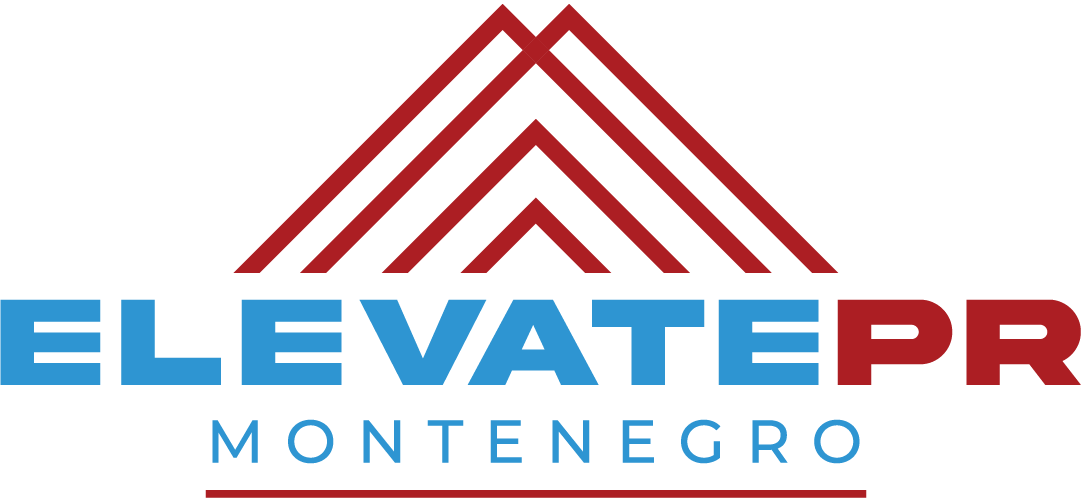For decades, Montenegro’s Adriatic coastline has been marketed for its beauty. Increasingly, it is being rediscovered for something far more consequential: a growing high-income resident base with expectations for modern healthcare services.
What began as a steady inflow of tourists and yacht visitors has evolved into a deeper demographic shift. Montenegro’s coastal cities—Budva, Tivat, Herceg Novi, and Kotor—are now home to an expanding expat population, foreign entrepreneurs, remote professionals, long-term business residents, and the so-called “new lifestyle migrants” seeking a blend of Mediterranean living and Euro-based economic stability.
As Montenegro advances on the path toward EU single-market integration, this demographic change is accelerating. With it comes a structural, chronic deficit: the lack of modern private healthcare capacity that aligns with the expectations of expatriates, foreign businesses, and rising domestic middle-class demand.
This gap—significant, immediate, and growing—represents one of Montenegro’s most compelling service-sector investment opportunities over the next decade.
The new coastal demographic: Expat population rising faster than services
Montenegro’s Adriatic region is undergoing a transformation few Balkan states have experienced. Coastal cities are witnessing:
- a rising number of foreign owners of residential properties
- long-term digital nomads and EU professionals relocating
- foreign companies establishing administrative and operational footprints
- yacht crews, hospitality investors, and maritime service specialists
- high-net-worth individuals seeking residency and tax stability
These groups share a common expectation:
Access to reliable, modern, international-grade private healthcare.
While public healthcare remains overstretched and underfunded, private healthcare capacity is small, fragmented, and insufficient compared with the demand emerging from:
- the Porto Montenegro / Lustica Bay districts
- marina communities in Tivat and Herceg Novi
- high-end hospitality clusters
- multinational corporate staff
- long-stay retirees and semi-permanent residents
The demographic base for private healthcare is no longer seasonal — it is permanent.
EU accession as a healthcare market accelerator
Montenegro’s path toward EU membership is reshaping investor expectations in the medical sector. Accession requires alignment with:
- EU healthcare standards
- digital health and patient-data regulations
- licensing transparency
- professional training requirements
- insurance portability
- cross-border care provisions
As Montenegro harmonizes these frameworks, two effects emerge:
A. Foreign confidence increases
Expats and businesses gain assurance that medical standards will align with EU norms.
B. Investment becomes bankable
Regulatory predictability encourages private medical operators, clinics, and diagnostic centers to enter the market.
The EU common market also opens eventual opportunities for:
- telemedicine cross-border cooperation
- specialist exchanges
- medical tourism programs
- recognition of professional qualifications
This adds multiple growth layers to a sector previously constrained by small domestic demand.
The coastal healthcare gap: Where the market needs are most urgent
1. Primary & family medicine (expat-focused)
Foreign residents expect English-speaking doctors, international insurance acceptance, and modern clinical environments. Coastal Montenegro has very few such providers.
2. Emergency & urgent care services
Rapid-response private emergency clinics are almost nonexistent outside Podgorica. Coastal density and tourism volume require immediate availability.
3. Diagnostics & imaging centers
MRI, CT, cardiology diagnostics, orthopedics, and gastroenterology are all insufficiently developed locally. Residents often travel to:
- Podgorica
- Dubrovnik
- Belgrade
- even Italy or Austria
This is a clear investment opening.
4. Specialist outpatient centers
High-margin specialties show strong demand:
- dermatology
- gynecology
- dental & oral surgery
- sports medicine
- orthopedics
- pediatrics
- cardiology
5. Private health insurance integration
International insurers seek networks of accredited private providers—a service ecosystem Montenegro currently lacks.
6. Corporate healthcare programs
Businesses operating in the coastal region—including maritime companies, yacht agencies, hospitality groups, and IT firms—require:
- occupational medicine
- employee healthcare packages
- preventive programs
- executive wellness & checkups
The absence of structured corporate health offerings is a major gap.
Tourism + expat base = dual market dynamics
The coastal medical demand profile is unique in the region because it blends:
Seasonal tourist surges:
Millions of annual visitors needing urgent care, diagnostics, pharmacy services, and injury treatment.
Permanent expat residents:
Individuals with higher purchasing power, preferring:
- private clinics
- shorter waiting times
- international medical standards
- English-speaking staff
Business-driven users:
Maritime, hospitality, aviation, construction, and professional-services workers—many of whom require occupational health compliance.
This creates a dual, year-round revenue model, reducing risk and increasing profitability.
Montenegro’s advantage: High demand + underserved market
From an investor perspective, Montenegro’s coastal private healthcare sector offers powerful fundamentals:
1. High willingness-to-pay
Private care in coastal Montenegro often attracts patients accustomed to EU pricing.
2. Low competition
Existing private clinics are small-scale, fragmented, and lack specialist depth.
3. Real-estate integration
Healthcare facilities can be integrated into:
- marina complexes
- residential developments
- tourism resorts
- mixed-use zones
This creates stable rental and operational synergy.
4. Insurance partnerships
Global insurers entering Montenegro seek reliable medical partners.
5. Cross-border spillover
Croatian, Serbian, Albanian, and Bosnian markets send patients for lower-cost specialist services.
6. EU-aligned regulatory future
Licensing, standards, and data protection will soon be comparable with EU norms—making Montenegro safe for long-term healthcare investment.
The Strategic Hotspots: Where Investors Should Focus
Tivat
–
Marina-driven, high-income expat base
Catchment: Porto Montenegro, Lustica Bay
Ideal for: diagnostics center, premium family medicine, corporate packages
Herceg Novi
–
Health heritage + fast-growing residential zones
Catchment: border-area expats, Igalo wellness legacy
Ideal for: physiotherapy, sports medicine, rehabilitation services
Budva
–
Tourism intensity
Catchment: seasonal surges, nightlife-related emergencies
Ideal for: urgent care, dental, trauma, outpatient surgery
Kotor
–
Cruise tourism
Catchment: cruise-ship passengers, maritime staff
Ideal for: urgent care, infectious disease control, lab services
Bar
–
Regional logistics expansion
Catchment: port workers, industrial growth
Ideal for: occupational medicine, workplace healthcare
What Montenegro must improve (and why investors benefit when it does)
Regulatory improvements needed
- Medical licensing efficiency
- Digital health record adoption
- EU-compliant facility standards
- Accreditation pathways for foreign professionals
Investor opportunities from these reforms
As regulations modernize:
- barriers to entry drop
- private–public partnerships become viable
- international healthcare operators can scale
- insurance networks expand
- medical tourism becomes bankable
Montenegro’s regulatory transition is not a risk—it is the catalyst.
Long-term opportunity: Montenegro as an expat health hub
The combination of:
- EU membership trajectory
- Euro-based stability
- mass tourism
- rising expat residency
- business establishment along the coast
- aging Western European relocation trends
- real estate–driven population shifts
creates a rare strategic opening:
Private healthcare as a foundational sector in Montenegro’s economic diversification.
For investors, operators, and medical service providers, Montenegro’s coastal healthcare sector is not an optional addition to the market—it is the next sector poised for structural expansion.
Elevated by www.mercosur.me


